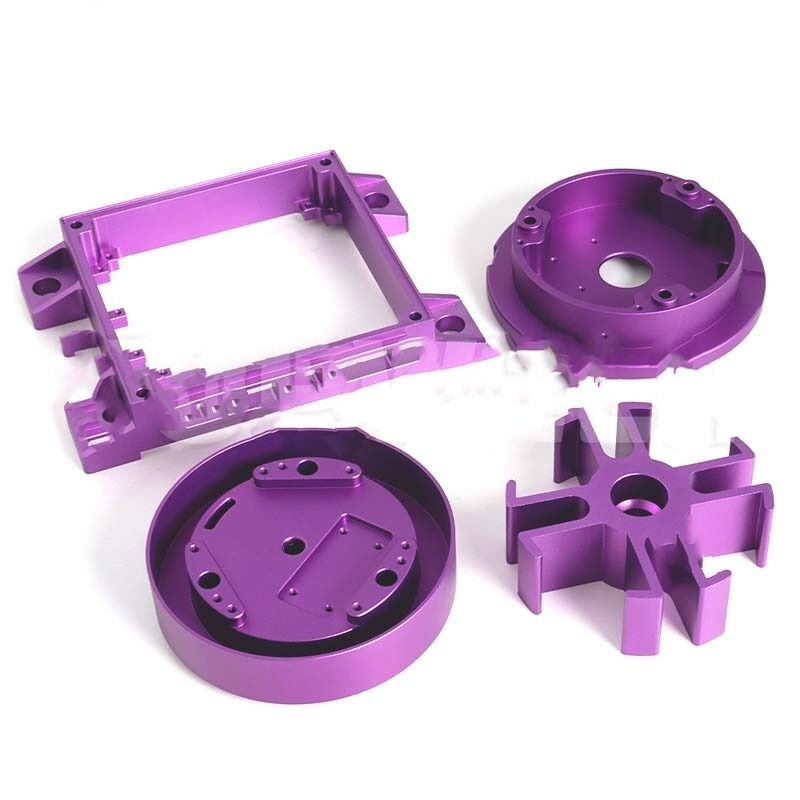CNC machining is really an extraordinary process that has vital importance in modern manufacturing. Today, it means making complex components for a variety of industries - aerospace and automotive to medical devices and consumer electronics with computer-controlled tools. All of this has revolutionized the production of high precision components, offering faster and more precise turn around times, than ever before.
Exploring the Wizards of CNC Machining for Custom Parts and Components
CNC machining opens up a pretty magical realm of software, machinery and material science. CAD designers create careful virtual maps which are then turned into G-code, the programmers' language for CNC machines From the machine's speed to its cutting path, these codes tell the machine exactly what it needs to do for every operation involved in machining parts with unparalleled complexity that was once unimaginable through traditional means. This marriage of creative art with technology enables the design & fabrication of unique prototypes and complex assemblies that illustrate what a boundless canvas we've been given as human beings to create in.
Transforming Manufacturing of Complex Components
CNC machining brings unprecedented efficiencies to the production of parts that are too difficult or time-consuming for a skilled worker. Cost savings and faster time-to-market: Programming machines to do repetitive tasks exactly every single increases production speeds, lowers errors, saves money its cheaper through volume making it sell at higher rate even faster line up executes. Moreover this technology is capable of machining difficult-to-cut materials such as titanium or Inconel that are essential for high strength and wear resistance applications. The combination of sophisticated tooling and multi-axis capability enables CNC machines to move through complex geometries, inner voids, or delicate features with ease making it possible to manufacture parts which were considered too complex or unfeasible.
How CNC Machined Parts are Changing the Face of Industry Innovation
CNC machining helps in promoting innovation. The constraints of traditional manufacturing processes are no longer a limitation, opening up creativity to the possible edges of what is possible for designers and engineers. In the manufacture of components for aerospace as in making lightweight items to be incorporated into space systems, or producing miniaturized equipment used by medical industry whereas improving performance in automotive engineering -CNC machined parts play an important role across all these realms. Additionally, being able to quickly prototype the parts using CNC machining has reduced premature concepts and brought down product time cycle as these can be tested out before it hits up a production of scale. This cycle of iterative development spawns a culture dedicated to improvement, which in turn fuels progress and innovation across industries.
Quality CNC Machining of Every Component
CNC machining is quality critical. Every component manufactured is subject to a strict and precise quality control, applied upon being built. Every step from the choice of materials to surface treatment is planned down to the smallest detail. Coordinate measuring machines (CMMs) are among the advanced inspection tools, which ensure precise dimensions to micron-level accuracy; statistical process control is also adopted as a methodology to maintain uniformity across mass production runs. This dedication to perfection is what makes CNC machined parts effective the long run, and over time it solidifies a customer retention rate that boosts company credibility.
CNC Machining in High Volume Part Production
CNC machining is often thought of for low-volume, high-complexity work, there are many types of errors in CNC machined parts. Features like gang milling that allows several elements to be machined at once and proper fixtures/jigs along with automated loading can used for the same, combine together exploiting CNC machines ability of executing many similar parts in one go. Combined with CNC program flexibility, this scalability allows manufacturers to quickly and effectively retool production lines as required by fluctuating market demands. Additionally, the repeatability of CNC processes guarantees that for ten or ten thousand parts from one batch to another will meet stringent requirements uniformly; a necessity in industries manufacturing repetitive high-tolerance components.
In sum, CNC machining goes beyond simple manufacturing and is a whisper that speaks of innovation and quality combined with efficiency in different sectors. The future of CNC machiningCNC is not going anywhere as technology moves forward, neither will the capabilities and impact on moving to different manufacturing landscapes. From designing complex components for spacecraft, to high-performance parts in the latest smart phones; CNC machining continues to be a testament of human potential and an example of how creativity goes hand-in-hand with modern day technology.





 ONLINE
ONLINE